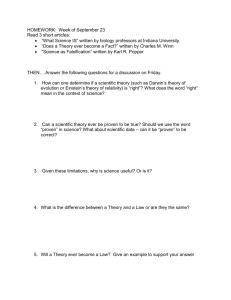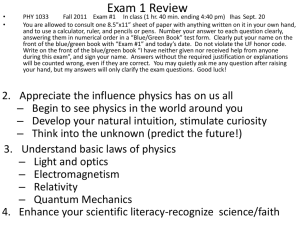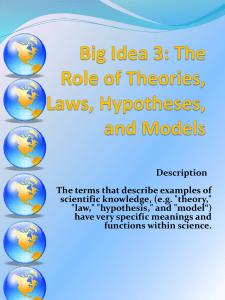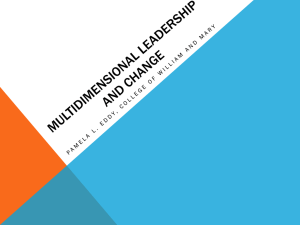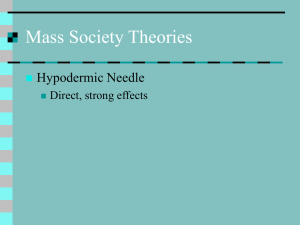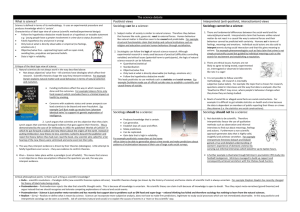theory
advertisement
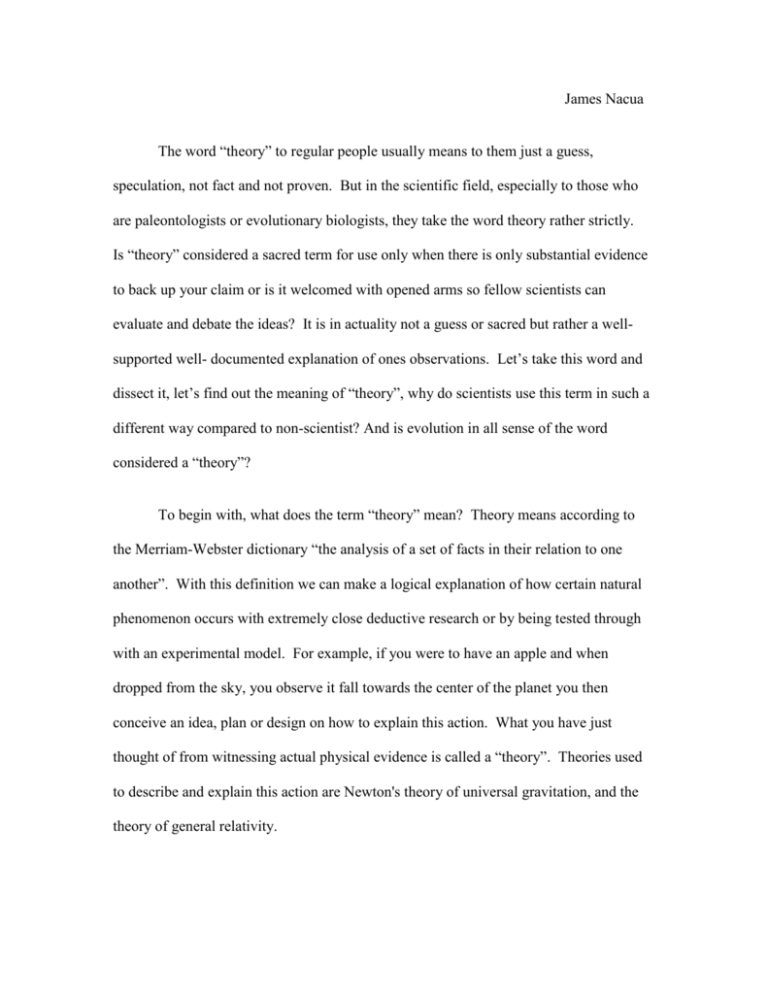
James Nacua The word “theory” to regular people usually means to them just a guess, speculation, not fact and not proven. But in the scientific field, especially to those who are paleontologists or evolutionary biologists, they take the word theory rather strictly. Is “theory” considered a sacred term for use only when there is only substantial evidence to back up your claim or is it welcomed with opened arms so fellow scientists can evaluate and debate the ideas? It is in actuality not a guess or sacred but rather a wellsupported well- documented explanation of ones observations. Let’s take this word and dissect it, let’s find out the meaning of “theory”, why do scientists use this term in such a different way compared to non-scientist? And is evolution in all sense of the word considered a “theory”? To begin with, what does the term “theory” mean? Theory means according to the Merriam-Webster dictionary “the analysis of a set of facts in their relation to one another”. With this definition we can make a logical explanation of how certain natural phenomenon occurs with extremely close deductive research or by being tested through with an experimental model. For example, if you were to have an apple and when dropped from the sky, you observe it fall towards the center of the planet you then conceive an idea, plan or design on how to explain this action. What you have just thought of from witnessing actual physical evidence is called a “theory”. Theories used to describe and explain this action are Newton's theory of universal gravitation, and the theory of general relativity. In addition, many people would define “theory” as a guess, a hunch, and not a fact, not proven, however to a scientist a “theory” means so much more, an explanation of countless research on a topic or a subject. It ties together all the facts about something, accumulating all the data and then can be used for predictions. In the field of science the theories are what these scientists thrive for. Scientists can finally make a statement or claim of what they have worked on through countless calculations, experiments and graphs, “it's as close to proven as anything in science can be”. For instance, the theories of gravitation, general relativity and evolution are theories from scientists who are specialists in their own field. These theories were to explain the mechanism of evolution and gravity. Newton, Darwin and Einstein are expertise in geology of the earth to astronomy to physicist, specialized in different fields and were able to have a theory of how the earth worked and are now revered in the field of science. Furthermore, is the evolution theory considered a theory? “Theory”, as stated earlier, is an explanation of how things came to be based on factual evidence. We have Charles Darwin who specializes in geology as well as being a naturalist, carefully noted a “rich variety of geological features, fossils and living organisms, and methodically collected an enormous number of specimens, many of them new to science.” Darwin’s survey took five years. With all this he created the theory that all species have evolved from a common ancestor through the process of natural selection. This brings us to the case of the peppered moths in England back in the mid 1840’s. Mostly known to be white in color but with recent pollution the tree bark turned dark and the moths’ stuck out and were eaten by birds. All the moths were practically eaten except for the dark colored peppered moths because they were properly adapted to the environment. Without a doubt that evolution is a fact in which that the changes in an organism did occur but the theory of evolution is the explanation or how these changes came about. Therefore, the term “theory” is an “imperfect truth”, as told by Stephen J. Gould, it is “never really a true claim on anything”. It is one step below fact and one step above guessing. We can’t rely on that theories are absolute, they are called theories for a reason, but rather take into consideration that they are the closest thing we have to explain how something operates based on factual evidence. The believability of a theory is structured through well thought out ideas that explain facts and implies a greater range of evidence and greater probability of truth.
